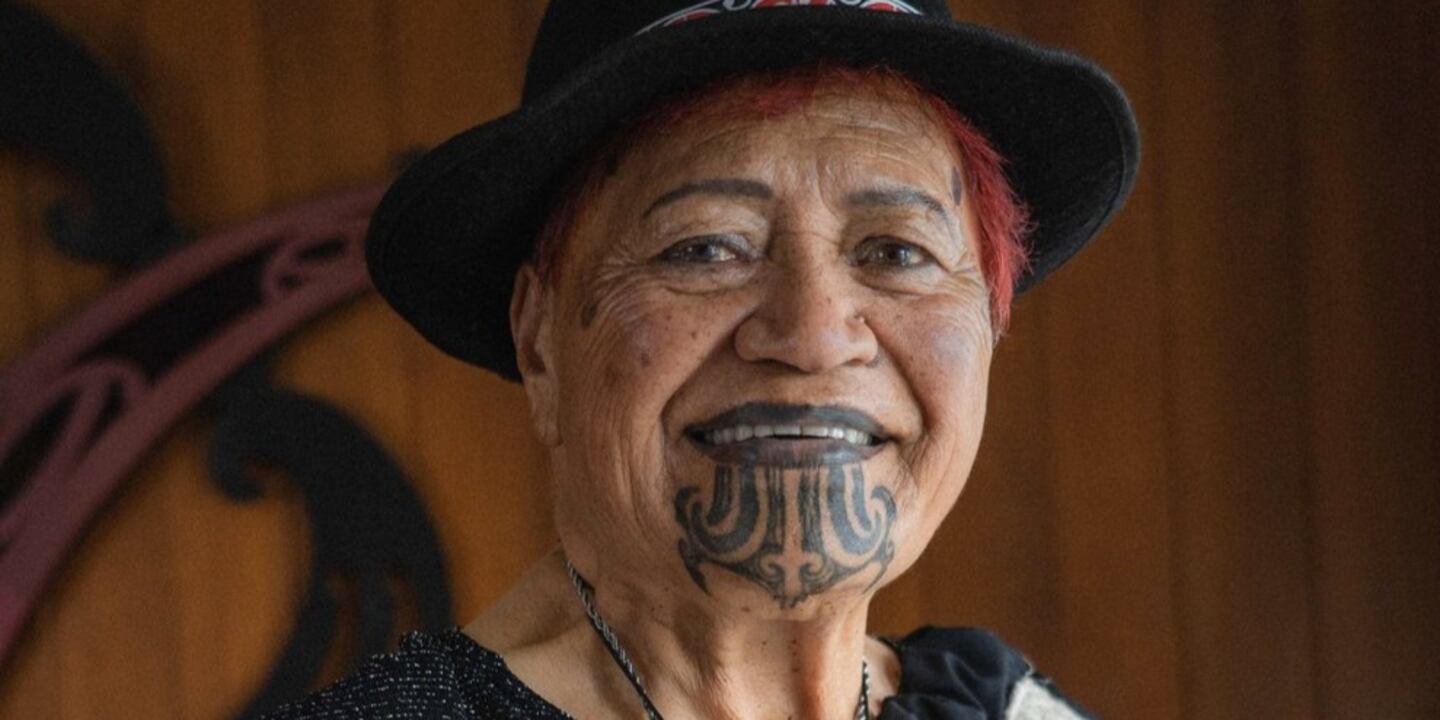Ngamoni Huata, the most published expert on the art and traditions of poi, has died. She was 78.
Ngamoni was of Te Arawa and Mataatua descent, affiliated to the iwi of Tūhoe, Ngāti Whare, Te Whakatōhea, Te Whānau a Apanui, Ngāti Rangiwewehi, Ngāti Rangiteaorere, Tūhourangi and Ngāti Wāhiao.
Her book The Rhythm and Life of Poi (2000) was the first book to be published on the subject and revealed a comprehensive history of its use, performance, and spiritual significance. She also wrote about its origins—Tāne’s wife Hineiterepo produced raupō (bulrush) and another wife, Pakoti, created harakeke; both are the main traditional sources for making poi.
As a child, Ngamoni said the poi was “a toy for us, something to play with and show off to ourselves.” But she did the hard yards too, learning about different harakeke, gathering raupō, and using the mud dyes at Whakarewarewa village where she was raised.
Ngamoni said performing the poi was also a demanding practice of storytelling.
“It’s a full body work, and this means the facial area as well.”
They were the points she looked for as a Te Matatini judge for the poi and Manukura Wahine (best female leader), a position she once won with Tūhourangi-Ngāti Wahiao. She and her late husband, Hemi Huata, also tutored many kapa haka over the years. He was the son of Wi Te Tau Huata, an Anglican minister, padre of the 28 Māori Battalion and composer of the waiata, Tūtira Mai Ngā Iwi.
In 2013, she was named the Keeper of Traditions at the Waiata Māori Music Awards for her dedication to teaching Māori culture through music. She also received Te Tohu Whakamanawa o Te Matatini, an award celebrating excellence in Māori arts and culture.
She told Stuff, that her biggest drive was giving youth something positive.
“No matter what they have done in the past, the Māori Performing Arts will be a turnaround for them. This is what they are good at and I want to get them hooked on kapa haka.”
Ngamoni will lie in state at Te Pākira marae, Whakarewarewa, in Rotorua.



